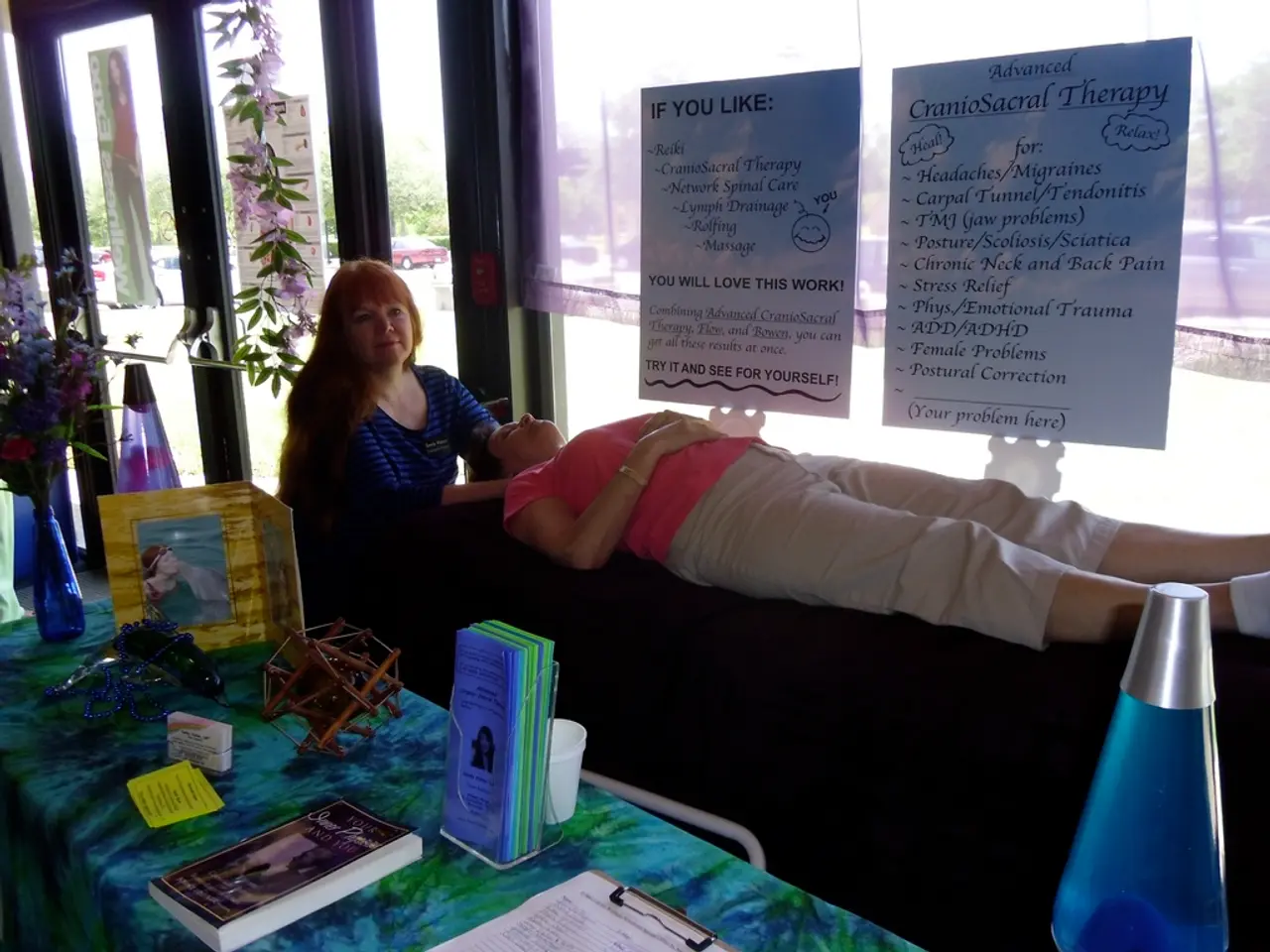Anxiety-Induced Muscle Tightness in the Neck and Shoulders
In today's fast-paced world, neck and shoulder pain have become common complaints, particularly among office workers and those who spend extended periods in front of screens. The good news is that there are various techniques to alleviate this discomfort, and understanding the connection between stress and these physical symptoms is key.
A study published in the International Journal of Physiotherapy and Research has shown that stretching exercises can help relieve shoulder and cervical pain. However, it's important to remember that stress can exacerbate these issues, as it triggers a physiological "fight or flight" response, releasing hormones like cortisol and adrenaline, which cause muscles in these areas to tighten.
Research indicates that chronic stress can cause physical symptoms, including headaches, sleep issues, and shoulder and neck tightness. The neck and shoulders are common areas for this tension because they support the head and help maintain an alert posture, making them more prone to strain under stress.
The levator scapulae stretch, the shoulder roll exercise, and regular exercise like yoga or pilates can help relieve stress in the neck and shoulder muscles and tissues by increasing strength, flexibility, and balance. Moreover, massage therapy, whether self-administered or professionally performed, eases stiff muscles, improves circulation, and encourages relaxation.
Avoiding discomfort from repetitive work or desk occupations is made easier with education in body mechanics and ergonomics. It's crucial to maintain a healthy sleep schedule, as it gives the body more time to recover and renew, reducing stress and maintaining overall health.
It's also essential to know when to utilize each technique, as both hot and cold therapies have advantages. Use cold for recent injuries or inflammation, while heat can provide relief for persistent pain or stiffness. Applying a warm compress to the shoulder, cervix, and back can provide immediate pain relief, relax tight neck muscles, and improve blood circulation.
In addition to physical techniques, reducing stress, elevating mood, and improving mental health, quality of life, and overall well-being can be achieved by practicing effective stress management techniques, such as mindfulness and meditation, regular exercise, healthy eating, getting enough sleep, and seeking out social support.
A study published in the Journal of Physical Therapy Science found a significant correlation between psychological stress and shoulder and neck pain, especially for office workers. Therefore, it's crucial to address stress to manage these physical symptoms effectively.
In summary, stress leads to neck and shoulder tension and pain through hormonal effects that cause muscle tightening, promote poor posture, and create lasting musculoskeletal imbalances, producing discomfort, stiffness, and even sharp pain if left unmanaged. By understanding this connection and implementing the recommended techniques, it's possible to alleviate neck and shoulder pain and improve overall well-being.
- The practice of mindfulness and meditation, led by science, can be effective in reducing stress, promoting mental clarity, and consequently, alleviating neck and shoulder pain by relaxing tense muscles and easing mental health issues.
- Incorporating mindfulness, meditation, regular exercise like yoga or pilates, healthy eating, and seeking social support into one's health-and-wellness routine can help manage stress, improve mental health, and maintain mental clarity, leading to a better quality of life.
- The study in the Journal of Physical Therapy Science sheds light on the significant connection between psychological stress and shoulder and neck pain, emphasizing the importance of addressing stress to effectively manage these physical symptoms and promote overall health and wellness.




